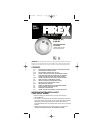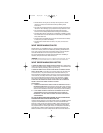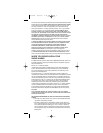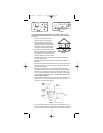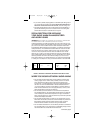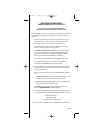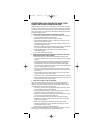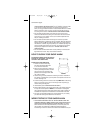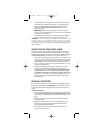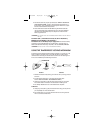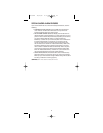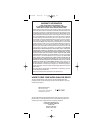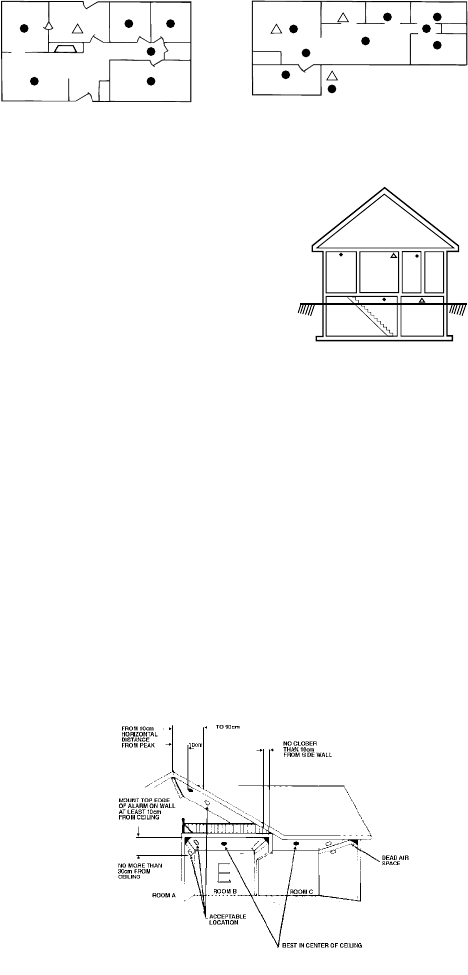
IF YOUR HOUSEHOLD OR RESIDENCE HAS SEVERAL FLOORS, THERE
MUST BE AN ALARM ON EVERY FLOOR, INCLUDING IN THE BASEMENT.
See Figure 3.
• Do install a smoke alarm in every
bedroom where a smoker sleeps.
• Do install a smoke alarm in every
room and bedroom where electrical
appliances (such as portable heaters,
humidifiers or electric blankets) may
be operated while someone sleeps.
• Do install a smoke alarm inside every
bedroom where someone sleeps with the
door closed. Smoke can be blocked by
the closed door, or the alarm may not
wake the sleeper if the door is closed.
• Do install smoke alarms at both ends of a bedroom hallway if it is
more than 30 feet long.
• Do install basement smoke alarms at the bottom of the basement
stairwell.
• Do install second floor smoke alarms at the top of the first-to-second
floor stairwell, as long as no door or obstruction blocks the path of
the smoke to the alarm.
• Do install a smoke alarm in a room where flammable household
chemicals or solvents are stored. For example, if you keep kerosene,
paint thinner or certain types of contact cements within your resi-
dence, install a smoke alarm in that room, unless not recommended
by a situation described in the section “WHERE YOU SHOULD NOT
INSTALL SMOKE ALARMS.”
• Do install smoke alarms on the ceiling not closer than 4 inches to any
wall or corner, or on the wall at least 4 inches but no more than 12
inches from the ceiling. See Figure 4.
• If your ceiling has radiant heat or has a lack of insulation to the out-
side, ceiling mounting of your smoke alarm is not advisable due to tem-
perature variations. You should follow the wall-mounting procedures.
FIGURE 1 FIGURE 2
FIGURE 3
BEDROOM
BED-
ROOM
BATH
BASEMENT
FURNACE
ROOOM
KITCHEN
FAMILY ROOM
DINING ROOM
KITCHEN
BEDROOM
BEDROOM
BEDROOM
LIVING ROOM
DENOTES SMOKE ALARM
WITH FALSE ALARM CONTROL
DENOTES SMOKE ALARM
KITCHEN
DINING
ROOM
BEDROOM
BEDROOM
BEDROOM
LIVING ROOM
4
FIGURE 4
110-644 10/5/00 2:17 PM Page 4



